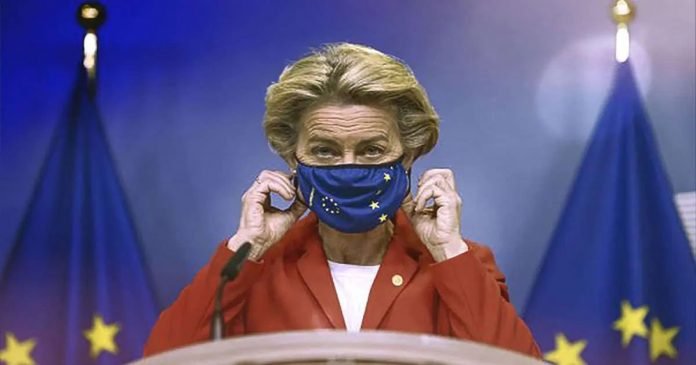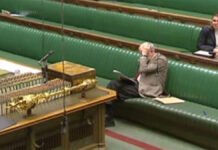In this protracted battle between Remainers and left-wing Leave supporters, truth has become the first and most enduring casualty. Yet amid the rubble of reasoned debate, one vital distinction must be salvaged: the difference between loving Europe and loving the European Union.
I am proud to be European, and harbour no sympathy for the xenophobic scaremongering of those little Englanders who would slam shut our borders in fearful isolation. Having lived across mainland Europe for several years both before and after the EU’s formation in 1992, I speak as someone who has witnessed first hand the continent’s transformation, and not always for the better.
My internationalism is passionate and unwavering. I believe in a people’s Europe, a social Europe built on solidarity rather than spreadsheets. But there are many forms of internationalism, and none that I recognise advocates membership of a capitalist trade bloc masquerading as a progressive project. The European Union, for all its lofty rhetoric about unity and values, remains fundamentally what it has always been: a union of capitalist nations constructed on free-market principles, systematically exploiting its own people through deliberately uneven development.
Consider the damning evidence of the EU’s own contradictions. Here stands a union that cannot, or will not, establish a minimum wage across its twenty-seven member states, that refuses to guarantee universal workers’ rights for fear of disturbing its precious market forces. This is not an oversight but a design feature, creating the conditions for systematic exploitation disguised as economic integration.
The reality is brutal in its clarity: the EU deliberately maintains wage disparities between east and west, ensuring a steady supply of cheap labour for its richer member states. Romanian and Polish workers toil in German factories and Dutch greenhouses not because of some noble vision of European brotherhood, but because market logic demands their exploitation. This is not internationalism, it is colonialism in a business suit.
The pandemic stripped away even the pretence of European solidarity, exposing the barbaric conditions under which Eastern European workers labour in Western Europe’s fields and factories. When Romanian Labour Minister Violeta Alexandru witnessed the appalling treatment of her countrymen, she called for a fundamental rethink of these arrangements. Her words should shame every progressive who still clings to the fantasy of a social Europe while defending an institution that makes such exploitation not just possible, but profitable.
This is the uncomfortable truth that Remain-supporting socialists refuse to confront: their beloved European project has become the enemy of everything they claim to stand for. While they wave European flags and speak movingly of internationalist values, the EU systematically undermines workers’ rights, entrenches inequality, and reduces human beings to units of labour to be moved around according to market demand.
The left-wing case against the EU was never about borders or sovereignty in any narrow sense. It was about recognising that genuine internationalism cannot be built on foundations of exploitation, that true European solidarity requires dismantling rather than defending institutions designed to serve capital rather than people. Those socialists who supported Leave understood what their Remain comrades could not: that sometimes the most internationalist act is to refuse participation in systems that dress oppression in the language of liberation.
For holding this line against enormous pressure, for refusing to abandon socialist principles for the comfort of progressive respectability, these left-wing Leave supporters deserve not condemnation but gratitude. They alone had the courage to say that Europe deserves better than the European Union, and that true internationalism begins with rejecting false prophets of solidarity who deliver only exploitation wrapped in blue flags and stirring anthems.
No, This Is Not Workers’ Internationalism
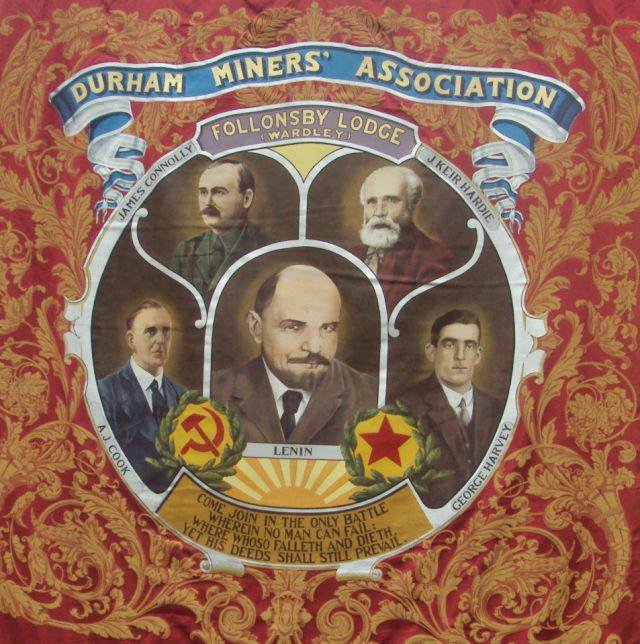
True proletarian internationalism, the kind that declares “workers of the world, unite”, is an internationalism of labour, not capital. It belongs to workers, not corporations and bankers. It has nothing in common with the hollow internationalism peddled by politicians, which translates seamlessly into globalisation’s latest euphemism.
Genuine international solidarity emerges when trade unions forge meaningful connections across borders, when they coordinate to negotiate for workers’ collective interests rather than compete for crumbs from the corporate table. It manifests when those interests are denied and unions exercise their right to industrial action in coordinated solidarity, true international brotherhood such as we witnessed with the Bakers Union and the McStrike campaign, or the RMT’s consistent practice of proletarian internationalism. Even when not taking direct action, these unions illuminate the struggles of workers worldwide, creating bonds of solidarity that transcend the artificial barriers erected by capital.
This distinction matters because the question posed in the 2016 referendum was never whether we wished to remain Europeans, a proposition both meaningless and impossible. We are European by geography, by culture, by shared history. The question was whether we wished to remain subject to the institutions of the European Union, including its fundamentally undemocratic Commission.
The people of Greece learned through bitter experience what those institutions truly represent. When Syriza dared to challenge the EU’s blueprint of permanent austerity and corporate supremacy, Brussels responded with economic strangulation that would have made nineteenth-century imperialists blush. The “remain and reform” mantra proved exactly what clear-eyed observers always knew it to be: a comfortable delusion for progressives unwilling to confront uncomfortable truths.
The fundamental contradiction cannot be wished away: you cannot be simultaneously anti-austerity and pro-EU. The European project has constitutionally enshrined the very neoliberal orthodoxy that socialists claim to oppose. To support EU membership while opposing austerity is to demand that water flow uphill, theoretically admirable, practically impossible.
When the ballot asked “Should the United Kingdom remain a member of the European Union?” my answer was an unequivocal “NO.” This was not a vote against Europe but a vote against European capitalism’s institutional framework.
The late Tony Benn understood what too many on the left refuse to acknowledge: “The EU has the only constitution in the world committed to capitalism… it destroys the prospect of socialism anywhere in Europe, making capitalism a constitutional requirement of that set-up.” These were not the words of a Little Englander but of a man who recognised that genuine socialism cannot flourish within institutions designed to prevent it.
Such a system necessarily concentrates enormous power in unelected and whatever the legal technicalities, practically unaccountable bodies: the European Commission, the European Central Bank, and the European Court of Justice. These institutions operate beyond democratic reach not by accident but by design, insulating neoliberal orthodoxy from popular challenge.
Remain campaigners inevitably respond by pointing to Britain’s own unelected institutions: the Civil Service, Bank of England, House of Lords, Supreme Court, and monarchy. The comparison is revealing but not in the way they imagine.
The crucial difference lies not in their current configuration but in their constitutional accessibility. British institutions, however flawed, remain theoretically within reach of democratic reform or abolition. They exist at the sufferance of elected representatives who could, given sufficient political will, transform or eliminate them entirely. The EU’s institutions, by contrast, are constitutionally insulated from such democratic interference, not as an unfortunate side effect, but as their primary purpose.
This is why the choice in 2016 was never between internationalism and isolation, but between genuine solidarity and institutional capture. Those who voted Leave from the left understood that real internationalism begins with rejecting systems designed to frustrate it. They recognised that sometimes the most progressive act is to refuse participation in institutions that weaponise the language of unity against the very people they claim to serve.
The tragedy is not that we left the EU, but that so many on the left convinced themselves that defending European capitalism was somehow a progressive position. They mistook the prison for the prisoner, the chains for the freedom. In doing so, they abandoned the very internationalism they claimed to champion.
No longer should the people be trusted to give the answer the EU wanted.
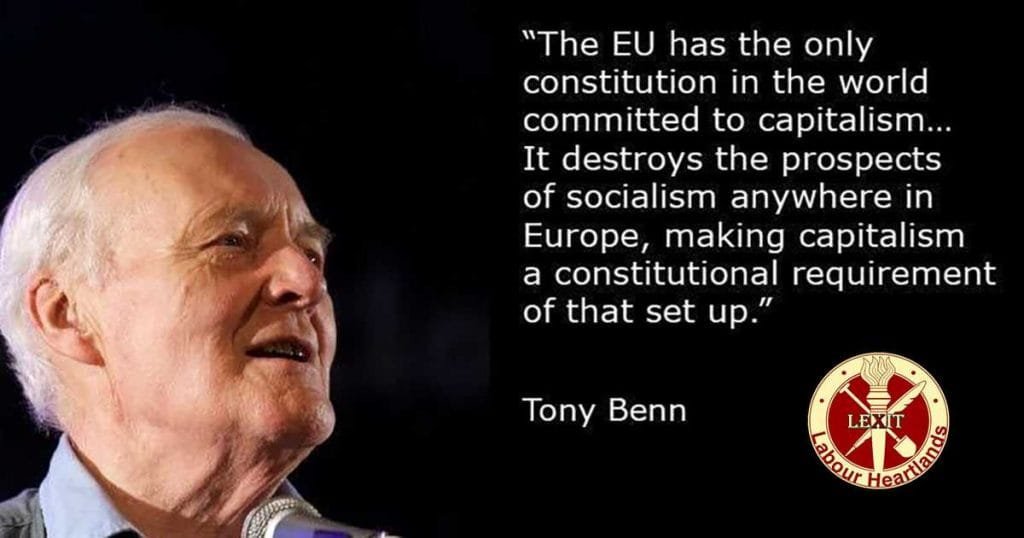
The referendum result to leave was decisive, and yes, by European Union standards, it was overwhelming. This assertion only appears controversial to those unfamiliar with the razor-thin margins that have shaped the EU’s entire existence.
The historical precedent that Remain supporters conveniently ignore. The most consequential EU referendums have been won and lost on differences of less than one percent. The very treaties that created our current European predicament passed by margins so narrow they would embarrass a parish council election.
The Maastricht Treaty, the foundational document that transformed the European Economic Community into the political project we know today, was ratified in France by the slimmest of margins. On 20 September 1992, French voters approved this treaty that would reshape the lives of 500 million people across 28 countries with just 50.8% support. A mere 300,000 votes separated the “yes” campaign from defeat, yet this microscopic mandate was deemed sufficient to revolutionise European governance.
The opposition to Maastricht revealed the true battle lines that persist today. The French Communist Party, alongside far-left organisations like the Revolutionary Communist League and Workers’ Struggle, recognised what centrist politicians refused to acknowledge: this was not about European cooperation but about enshrining neoliberalism in constitutional form. Their warnings, dismissed as extremist scaremongering, have proved prophetic in every particular.
The result became known as the “petit oui”, the “little yes”, a phrase that captures perfectly the threadbare legitimacy upon which the entire European project rests. When combined with Denmark’s initial rejection of Maastricht by 50.7% (with a turnout of 83.1%), this marked the end of what scholars term the “permissive consensus” on European integration. The peoples of Europe, when actually consulted, demonstrated profound scepticism about the direction their leaders were taking them.
Yet somehow, a 52% Leave vote in Britain, a margin of 4%, is dismissed as insufficient, while a French majority of 0.8% was celebrated as a ringing endorsement of European integration. The intellectual dishonesty is breathtaking in its audacity.
This selective amnesia about democratic mandates reveals the authoritarian instincts lurking beneath Brussels’ democratic rhetoric. When electorates deliver the “correct” result by whisker-thin margins, the will of the people is sacred. When they deliver the “wrong” result by substantial margins, suddenly we hear demands for second referendums, claims that voters were misled, and suggestions that such momentous decisions should never have been put to popular vote in the first place.
The left’s historic opposition to the European project has been deliberately obscured by those who find such inconvenient truths embarrassing. Yet it represents a principled position rooted in socialist analysis rather than nationalist sentiment. As Tony Benn consistently argued, the EU constitution remains unique in world history for constitutionally embedding neoliberal economics into its founding documents. No amount of progressive wishful thinking can alter this fundamental reality.
For the third of Labour Party members who voted Leave in 2016, the subsequent years have brought an onslaught of bigotry and intellectual intimidation. Bennite socialists who remained within the party have endured unprecedented attacks from centrists determined to rewrite history rather than engage honestly with the socialist case against European capitalism.
These attacks reveal the profound intellectual poverty of the Remain position. Unable to defend the EU’s actual record, its destruction of Greek democracy, its constitutional prohibition of socialist economics, its systematic exploitation of Eastern European workers, centrists resort to character assassination and historical revisionism. They would rather demonise principled socialists than confront the uncomfortable truth that their European project serves capital, not labour.
The centrist argument, stripped of its emotional manipulation and historical distortion, reduces to a single proposition: that we need more neoliberalism, not less. They demand that socialists abandon their principles to support an institution explicitly designed to frustrate socialist politics. When pressed on this contradiction, they retreat into vague promises about “reform from within”, the same delusion that has paralysed progressive politics for a generation.
The 2016 referendum represented a rare moment when the British people were allowed to express their opinion about forty years of elite consensus. They rejected that consensus decisively, by margins that would have been celebrated as overwhelming mandates in any other European context. The tragedy is not that they voted Leave, but that so many on the left have spent the subsequent years apologising for democracy rather than defending it.
History will vindicate those socialists who recognised that genuine internationalism requires rejecting institutions designed to prevent it. They understood that sometimes the most progressive act is to vote against progress’s false prophets. Their reward has been years of abuse from those who mistake institutional loyalty for political principle. They deserved better then. They deserve recognition now.
If it’s a Tory Brexit then it’s true, it has always been a Tory EU
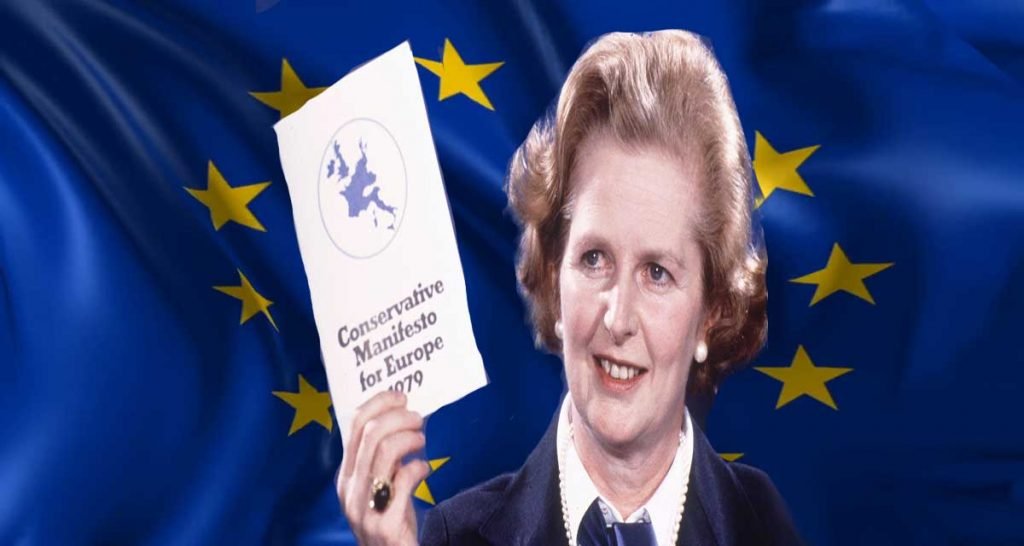
The centrist have created the argument this is a ‘Tory Brexit’, while completely ignoring the Tory Party have since 1973 been the Party of the EU they had more skin in the game to remain than any other UK political Party, having both taken us into the common market and the EU while socialist and Labour stalwarts from Tony Benn to Jeremy Corbyn opposed both treaties.
The truth once more, many on the LeFT were stunned that leave had won the vote! The amount of money spent, trying to convince the people to remain, £9.3 million of public’ money, on leaflets that only spelt out the pros of remaining in the EU. Ironically the webpage still exists titled ‘. ‘Why the Government believes that voting to remain in the European Union is the best decision for the UK‘.
Along with the establishment support, it was unprecedented but not unexpected, after all, the EU was and always has been a Tory project. The Tories never ever wanted to leave, let alone be the party to take the UK out of the EU. No wonder Camron resigned the next morning after edging all his bets on Remain.
In the same frame no wonder, the Labour Party PLP carried out their so-called Chicken coup on Jeremy Corbyn less than three days later. Corbyn at the time was the only competent political leader with enough knowledge of the EU being a life long Eurosceptic he had made many of the arguments for Lexit in his four decades as a politician.
The centrist also skips the fact that the Tory Party, in general, campaigned vigorously to remain in the EU spending millions in public money to enforce a message of remain.
Within the Conservative Party (which was officially neutral), 25 of the 30 Cabinet Ministers including the Prime Minister, David Camron who dramatically resigned the day after the referendum returned an out, vote.
The majority of the Conservative Party’s 330 MPs announced that they would campaign for Britain to remain in the European Union and did so.
Of course, all leave supporters are racist!
Tony Benn once said: “you have to differentiate between nationalism, which hates foreigners, and the right of self-government, which is a democratic argument”.
There are some who argue this vote to leave the EU is a racist vote, where I have no argument racists certainly voted to leave the EU, I’ve been flummoxed to understand which race they despised so much to make them ‘vote leave’, after all the EU is predominately Caucasian.
But for those on the LeFT ‘race’ or more accurately ‘xenophobia’ never came into the decision, like most right-minded people the vote was based on firstly it was a case of democracy and then fundamental questions like, do we want to belong to this Supranationalist organisations know as the EU or do we want to employ the socialist principle of self-determination?
Self-determination
That Right of Nations to Self-Determination, outside of what Jeremy Corbyn described as a European Empire the right to say no and choose our own destiny as a country
“My view of the EU has always been not that I am hostile to foreigners but I am in favour of democracy. I think they are building an empire and want us to be part of that empire, and I don’t want that.” -Tony Benn
The European Union is a liberal empire, and it is about to fall, warns Wolfgang Streeck (Max Planck Institut). The position of imperial hegemon belongs to Germany, which is finding it increasingly difficult to fulfil that role.
What is the European Union? The closest concept I can come up with is that of a liberal empire. An empire is a hierarchically structured block of states held together by a gradient of power from a centre to a periphery. At the centre of the EU is Germany, trying more or less successfully to hide inside a “Core Europe” (Kerneuropa) formed together with France. Germany doesn’t want to be seen as what the British used to call a Continental Unifier, even if in fact this is what it is. That it likes to hide behind France is a source of power for France vis-a-vis Germany.
Like other imperial countries, most recently the United States, Germany conceives of itself and wants others to do the same, as a benevolent hegemon doing nothing else than spreading universal common sense and moral virtues to its neighbours, at a cost to itself that is, however, worth bearing for the sake of humanity. In the German-cum-European case, the “values” that are to give legitimacy to an empire are those of liberal democracy, constitutional government and individual liberty, in short, the values of political liberalism. Wrapped into them, to be displayed when expedient, are free markets and free competition, i.e., economic liberalism. Determining the exact composition and the deeper meaning of the imperial value package and how it is to be applied in specific situations is a prerogative of the hegemonic centre – enabling it to extract a sort of political seigniorage from its periphery in return for its benevolence. Read more
Of course for those that like their messages more visual here’s what we are discussing: Guy Verhofstadt Lib Dem conference 2019: Building Empires
The Lib Dems cheering Verhofstadt calling for a European Empire is like a party political broadcast for Vote Leave. “The world order of tomorrow is not a world order based on nation-states or countries- it’s a world order that is based on Empires.”
Guy Verhofstadt Lib Dem conference 2019 sounds more 1939 Shocking rhetoric.
We did not fight for the vote to have it dismissed or overturned by the politicians or the losing side!
Michael Foot, the last true socialist Labour leader before Jeremy Corbyn.
It is that accountability that we demanded to be brought back to Westminster. It is that same accountability echoed in Michael Foot’s speech when he stated :
“People didn’t fight for the vote just to have the fun of electioneering, they wanted to see that the vote that they used and the Ballot Box could change things, stop things, alter things, remove governments when necessary.
That’s one of the principal reasons for having a vote, but that’s not going to happen if we stay in the market, if we become enmeshed in the whole of their machinery and apparatus, because what will happen then is that you can go and have an election in this country, in which we vote out the government here, but you won’t be voting out all the governments that meet in Brussels to decide what’s going to happen to us!
It is that precious inheritance, given us by the people who fought for the right to vote, fought for the right to form trade unions, fought for the right to establish their own institutions, fought for the right to have an elected house of commons which should be the supreme authority in this country and answerable to nobody else, it is those things that are at stake in this campaign. “
It is these points of democracy and accountability that hold true. The UK is a democracy and the true power is within the hands of the people.
Denying democracy
“When I saw how the European Union was developing, it was very obvious what they had in mind was not democratic. In Britain, you vote for a government so the government has to listen to you, and if you don’t like it you can change it.” -Tony Benn
The argument against the legitimacy of the referendum has never held water and even Sir Keir Starmer understand that when he made his speech in the house of commons shortly before A50 voted. He stated:
“We lost the referendum. Yes, the result was close. Yes, there were lies and half-truths, worse than the false promise of an extra £350m a week for the NHS.
Yes, technically the referendum is not legally binding. But the result was not technical; it was deeply political, and politically the notion that the referendum was merely a consultation exercise to inform Parliament holds no water.
When I was imploring people up and down the country to vote in the referendum and to vote to remain, I told them that their vote really mattered and that a decision was going to be made. I was not inviting them to express a view.
Although we are fiercely internationalist and fiercely pro-European, we in the Labour party are, above all, democrats.
Had the outcome been to remain, we would have expected the result to be honoured, and that cuts both ways.
A decision was made on 23 June last year to leave the EU. Two-thirds of Labour MPs represent constituencies that voted to leave; one third represent constituencies that voted to remain.
This is obviously a difficult decision.
I wish the result had gone the other way, I campaigned passionately for that but as democrats, we in the Labour party have to accept the result. It follows that the prime minister should not be blocked from starting the article 50 negotiations.”
-End Quote-
Obliviously Starmer’s done a lot of flip-flopping since then, making Owen Jones look more like a clog dancer than a professional Flipper.
But being fair to Starmer he could always see the chink in Corbyn’s armour and his backstab on a second referendum during the 2018 Labour Party conference was the beginning of the end for Corbyn along with any chance of a Left-leaning Labour Party ready for office. It was also the vehicle Sir Keir Starmer used with the Remain supporters to get him elected as Labour Leader.
Ironically the first dictate he made as leader was, ‘GET BREXIT DONE!‘ and is now cajoling the PLP to accept any deal the Tories get even a bad deal.
The lefties for neoliberalism AKA ‘Remainers’ have completely lost sight of the principles and foundations of socialism within the Labour Party. They have cast aside the values of democracy and socialism with unfounded cries of Racism, Russian interference and electronic manipulation by companies like Cambridge Analytica all have proved false.
In 2020, the British Information Commissioner’s Office closed a three-year inquiry into the company, concluded that Cambridge Analytica was “not involved” in the 2016 Brexit referendum and found no evidence for Russia’s alleged interference during the campaign.
Yet journalists like Carole Cadwalladr grandstanded these accusations presenting them as absolutes, she was awarded the Orwell Prize for Journalism for her Brexit and Cambridge Analytica data investigation.

It’s amazing that her unsourced, unsubstantiated claims were ever published. For years she has pumped these claims about Russian agents and Russian money using every media outlet possible even a Teds talk. In the process, she has not only attacked individuals, but every member of the British public who voted for Brexit in 2016.
Cadwalladr and her financial backers have for years pretended that the British public were misled into voting for Brexit. Instead of listening to the genuine concerns of their fellow citizens, they engaged in a smear campaign against us. They pretended there were no serious reasons to vote the way we did, but only vacuous, stupid people, led down the wrong road by agents of a foreign power. It was an outrageous claim, outrageously encouraged and tolerated by Cadwalladr’s colleagues and peers because she seemed to be confirming their own bigotries and prejudices.
At the moment Cadwalladr is going through a very public court case where she is backpedalling faster than a cyclist in oncoming traffic in her accusations about Russian money and influence during the Brexit referendum, Cadwalladr has dropped her truth defence in her libel battle but now insists her claims were in the public interest.
The fact is we find the only real Russian interference came from Alexander Lebedev, a former KGB agent and his son Evgeny Lebedev, co-owners of The Independent newspaper based in Dublin ‘Independent News & Media’ their support for Remain and the so-called Peoples vote has had an influencing effect on many people.
Counter-revolutionaries against a working class vote.

Misguided Liberals: How the Second Referendum Campaign Destroyed the Left
For four years, misguided progressives campaigned for a second referendum, a policy that obliterated the Liberal Democrats and delivered Labour’s catastrophic defeat in the 2019 general election. In their desperation to overturn a democratic result they found personally offensive, they threw away Britain’s best opportunity for genuine transformation in a generation.
The casualties of this political malpractice extend far beyond electoral arithmetic. Jeremy Corbyn, the UK’s most credible challenge to the rigged system, the only Labour leader in decades willing to confront the establishment and its entrenched interests, was forced to step down. The baby, as they say, was thrown out with the bathwater, and what a loss that baby represented.
The Remain camp’s obsession with a “People’s Vote” delivered exactly what Peter Mandelson and his network had always wanted: Corbyn’s removal. The suits behind Open Britain and the People’s Vote Campaign achieved their primary objective, though not in the way their foot soldiers imagined. They thought they were fighting for European democracy; in reality, they were serving as useful instruments for the very centrist forces they claimed to oppose.
The Left-wing Remainers Neoliberalism’s useful idiots.
If they thought they were Revolutionaries then they were counter-revolutionaries. If they thought they were Socialists? Then they were capitalism’s useful idiots. Pro working-class? Hardly they worked to overthrow millions of working-class votes and try to ensure that the British working classes, and the rest of the UK, remain subservient to ruthless EU neoliberalism.
These self-proclaimed revolutionaries became counter-revolutionaries the moment millions of ordinary Britons dared to challenge their European orthodoxy. They positioned themselves as socialists while serving as capitalism’s most effective advocates. When working-class communities across the North and Midlands voted to break free from Brussels’ neoliberal straightjacket, these comfortable progressives wept into their oat milk lattes and cried “fascism!” The irony was lost on them entirely: they were demanding the overthrow of a working-class revolt in the name of protecting working-class interests.
The material evidence of their delusion lies scattered across Britain’s post-industrial landscape. How did decades of ever-closer European integration work out for the Red Wall regions and traditional Labour heartlands? The statistics tell a story that should shame every progressive who campaigned to keep Britain shackled to Brussels.
And how did this ever-increasing EU work out for the people in the Red wall regions and the general Labour Heartlands?
There are nine UK regions in the top ten of northern Europe’s most deprived areas.
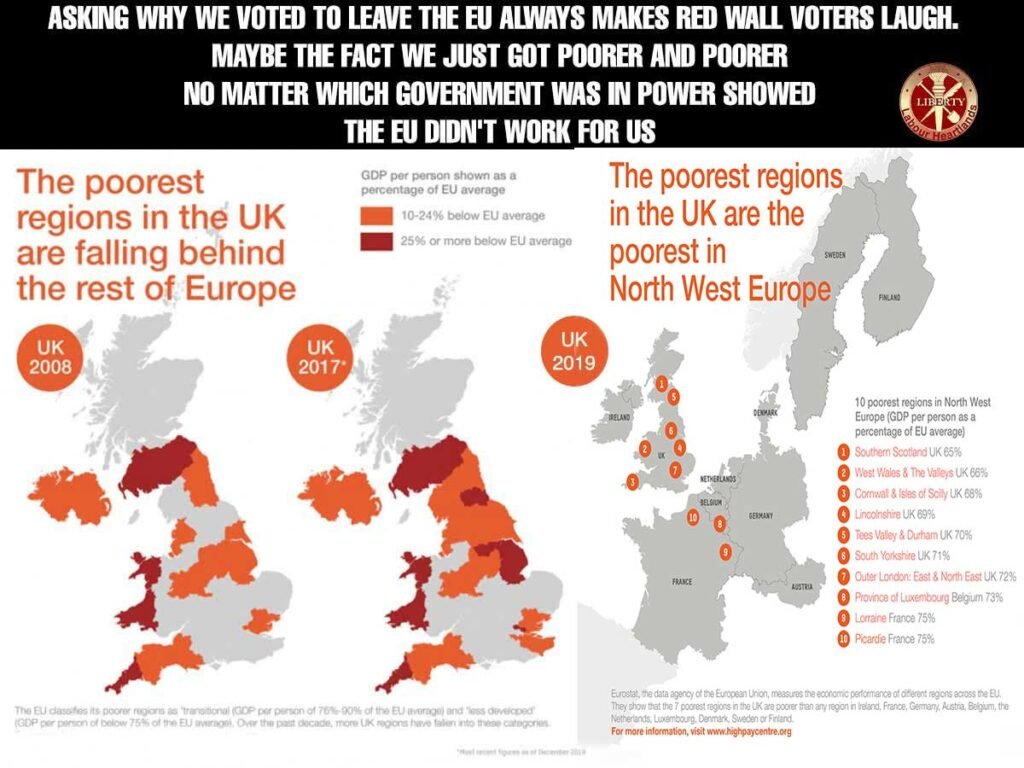
Nine UK regions rank among the ten most deprived areas in northern Europe. West Wales, Durham and Tees Valley, South Yorkshire, and Northern Ireland sit alongside the continent’s most neglected corners, a damning indictment of the European project’s promises of shared prosperity. While Inner London enjoys the distinction of being northern Europe’s richest region, it stands alone in the top ten. The contrast could hardly be starker: one gilded enclave surrounded by systematic deprivation.
Research by Inequality Briefing reveals that Britain suffers the widest gap between richest and poorest regions in the entire European Union. Only 27% of the UK population live in areas wealthier than the EU-15 average, with just London and the South East exceeding that benchmark. This is the legacy of four decades of European integration: spectacular wealth concentration in the capital while former industrial heartlands are left to decay.
The rapid industrial decline initiated under Margaret Thatcher found its perfect complement in European Union membership. While Brussels preached convergence and cohesion, British manufacturing was systematically dismantled and relocated to countries with cheaper labour and weaker environmental protections. The EU’s single market became a mechanism for deindustrialisation, not development.
Yet when the victims of this process finally had their say, comfortable metropolitans dismissed their concerns as ignorance and bigotry. The same progressives who claim to champion the dispossessed turned on them the moment they exercised democratic agency in ways that challenged progressive assumptions. The mask slipped, revealing the class contempt underlying so much liberal politics.
The tragedy of 2019 was not just electoral but intellectual. A genuine socialist project, imperfect but authentic, was sacrificed on the altar of European fetishism. Corbyn’s manifesto promised public ownership, workers’ rights, and environmental justice. The EU’s constitutional framework prohibited most of these measures. Yet somehow, defending European institutions became the progressive position while challenging them marked one as reactionary.
The People’s Vote campaign succeeded beyond Mandelson’s wildest dreams. They removed Corbyn, neutered Labour’s radical potential, and delivered Boris Johnson a mandate he could never have achieved without their assistance. All while convincing themselves they were saving democracy from populist authoritarianism.
The working-class communities that voted Leave understood what their metropolitan betters refused to acknowledge: that genuine change requires challenging the institutions that perpetuate exploitation, not defending them in the name of enlightened internationalism. They recognised that sometimes the most progressive act is to reject systems designed to frustrate progress.
These communities have been vindicated by subsequent events. Johnson’s government proved as committed to neoliberal orthodoxy as any Brussels bureaucrat, but at least it was democratically accountable for its failures. The European Union offers the worst of both worlds: neoliberal economics insulated from democratic challenge.
The second referendum campaign represents a masterclass in how progressive politics can be manipulated to serve conservative ends. Well-meaning activists were mobilised to defend the very system their values should have led them to oppose. They became, in Lenin’s memorable phrase, useful idiots, though the idiocy was theirs, not their manipulation.
The left’s task now is to learn from this disaster. European integration and socialist politics remain fundamentally incompatible. Until progressives accept this reality, they will continue serving as unwitting instruments of the forces they claim to challenge. The working class understood this instinctively. It is time the left caught up with its own supposed constituency.
Trade
News for you folk, Biden won the presidency, watch out for a re-emergence of TTIP and chlorinated chicken being put on EU shelves. Do you remember that deal Obama said we wouldn’t get if we left the EU? Then when we did vote to leave and Trump stopped TTIP you told us we would get that deal as punishment for leaving the EU. Well, Biden’s your man for bringing it back.
A Biden administration’s foreign policy would revert to liberal internationalism and in particular liberal institutionalism, meaning re-engagement with international governmental organisations.
A new administration will probably re-vitalise the US-EU Transatlantic Trade and Investment Partnership (TTIP). Trade policy can be viewed not only in economic terms but also as a tool of foreign policy. Both US and EU leaders viewed TTIP as not only an opportunity to increase trade and investment flows but also to cooperate to thwart the Chinese government’s ambitions to shape the agenda on global trade and finance. This desire to contain China would also see the US government seek to re-enter the re-named Comprehensive and Progressive Agreement for Trans-Pacific Partnership (CPTPP) which at the last count included Australia, Brunei, Canada, Chile, Japan, Malaysia, Mexico, New Zealand, Peru, Singapore and Vietnam, with the UK in discussions to join.
The US’s re-engagement in multilateral intergovernmental organisations means the US would probably unblock the appointment of judges to the WTO’s Appellate Body and come to an agreement on the new Director-General of the WTO.
But with or without TTIP there is still CETA and that’s one hell of a bad deal for the common folk.
John Hilary, Executive Director of War on Want, talks to Carrie Cracknell about the threat from free trade agreements to public services, in the context of TTIP, CETA, TiSA and other treaties.
Workers rights
The defence of workers’ rights is the main pro-Remain argument used by the Trades Union Congress (TUC), all but three affiliated trade unions (TUs), and the newly formed Left Against Brexit (Another Europe is Possible). Their argument is flawed for the following reasons:
- It is based on the false assumption that the EU protects workers’ rights whilst at the same time overestimating the limited protections enacted.
- It elevates and relies on the legal system rather than collective bargaining by workers organised in trade unions
- It displays ignorance of trade union history and in so doing undermines the role of organised workers to win hard-fought improvements in wages and living standards.
- It ignores the anti-trade union rulings of the European Court of Justice (ECJ), based, as it is, on the palpable pro-employer nature of the EU itself.
The TU leadership’s enchantment with the EU stems from the now shattered myth of “social Europe” propounded by Jacques Delors at the TUC Congress, in 1988 (see #Analysis #7 – Why Does the British Left Love the EU?). The Lisbon Programme of 2000 effectively undermined any promises of the Delors agenda by insisting on “flexicurity”: more precarious work, supported by a social security “safety net”. The Lisbon Treaty of 2008, following the financial crash, reversed “social Europe” completely by undermining legal basis of workers’ right to employment contracts and negotiated collective agreements. This, coupled with the privatisation of public services, has clearly privileged the power of capital as being the dominant EU “freedom”. The protection of business interests has been rigorously backed by a succession of ECJ rulings (see below).
Nevertheless, the “left Remainers” still cling on.
The most important EU provision cited by the Remainers is the Working Time Directive 2003 which Theresa May has not ruled out transposing into UK law, although the Tories dislike it. The Directive gives workers rights to daily and weekly rest, a maximum weekly working time, and a minimum of four weeks paid annual leave. However, employees who want, or are pressured, to do so can simply sign a written opt-out. In 1998 the Labour Government passed The Working Time Regulations – a slightly improved version of the EU Directive. In fact, most negotiated collective agreements in the UK give workers a much better deal: a maximum 40 hour week, a demand championed by the labour movement since the 1880s.
Professor Mary Davis is a Labour historian. Active in the Labour movement her whole working life, she received the TUC’s Women’s Gold Badge for services to trade unionism in 2010. Read more.
A sticking point on the EU trade deal is workers’ rights, yes some may feel the Tories will decimate our worker’s rights. To be fair it’s an ongoing battle, however, the EU has never been big on workers’ rights and if we did happen to align with the EU worker’s rights at what level do we do that? All EU worker’s rights are substantially less than those set by the UK. We could in theory see a reduction of workers’ rights down to EU minimums. You have to honestly ask why the Tories have not already done this in the last 10 years, that answer is very simple it’s a vote loser.
EU Commission makes it clear: The same minimum wage for all EU countries is impossible
In October the EU looked at universal minimum wage, something many of us have commented on for years. Their conclusion is to outsource the responsibility claiming that collective bargaining on wages is the “gold standard” for all member states. On this, we agree but in the same breath, the EU commissioner also stated that unbalanced wages must continue or economies will crash. Read more.
Commissioner Nicolas Schmit said that if Bulgaria, the country with the lowest wages in the EU, were to introduce the same wages as his native Luxembourg, the very next day there would be “no Bulgarian economy”.
The minimum wage in Bulgaria is €312, and it is €2,071 in Luxembourg.
It begs the question of what sort of EU allows such imbalances of wages, its a wonder the Bulgarian economy has not crashed through lack of workers all heading for better pay elsewhere, oh, wait… They have and who could blame them.
According to the International Labour Organisation, adequate minimum wages contribute to sustaining domestic demand, strengthening incentives to work, reduce wage inequalities and in-work poverty.
In the EU, in-work poverty increased from 8.3 percent in 2007 to 9.4 percent in 2018 as a result of the previous economic crisis.
The gender pay gap needs to be looked at urgently – given that nearly 60 percent of minimum wage earners are women.
In the EU, minimum wage protection in Denmark, Italy, Cyprus, Austria, Finland and Sweden is provided exclusively by collective agreements, and the remaining 21 countries have statutory minimum wages set by governments.
However, the EU proposal does not oblige member states to harmonise their systems, nor does it set a common minimum wage level.
In fact, the EU will not pursue a minimum wage throughout its 27 member states they have admitted that instead, the provision promotes collective bargaining on wages as a “gold standard” for all member states since those countries with high collective bargaining coverage tend to have a lower share of low-wage workers, lower wage-inequality and higher minimum wages.
“There will be never, at least not in the foreseeable future, the same level of minimum wages in all the member states of the Union,” said the EU commissioner for jobs and social rights, Nicolas Schmit.
“Promising the same minimum wage for all Europeans would not be realistic, would be impossible and irresponsible,” he added.
A few EU UK comparisons to consider.

Check your holiday entitlement Gov.UK Most workers are entitled to 5.6 weeks’ paid holiday a year. You can use the holiday calculator to work out how much leave someone should get.
Now we are in this final month before leaving the EU it seems appropriate to reproduce Enrico Tortolano’s article from 15 June 2016 to give a recap of the EU neoliberal make-up.
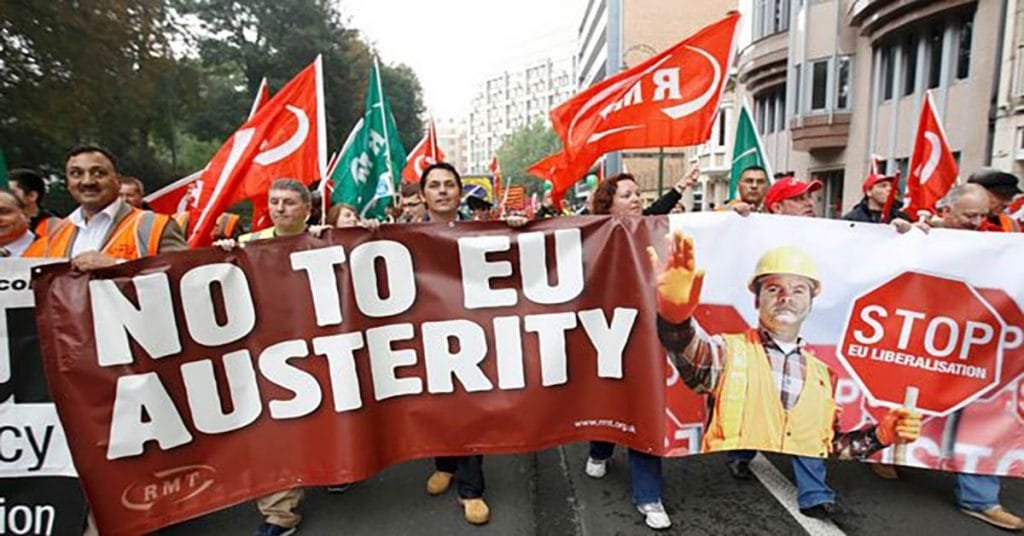
Workers across Europe have rallied against a union which has used its undemocratic structures to force neoliberalism on a continent.
Voting to leave the EU is a no-brainer for the Left. The European Union is remote, racist, imperialist, anti-worker and anti-democratic: It is run by, of, and for the super-rich and their corporations. A future outside austerity and other economic blunders rest on winning the struggle to exit the EU, removing us from its neoliberal politics and institutions. Corporate bureaucrats in Brussels working as agents of the big banks and transnationals’ now exert control over every aspect of our lives. Neoliberal policies and practices dominate the European Commission, European Parliament, European Central Bank, European Court of Justice and a compliant media legitimises the whole conquest. This has left the EU constitution as the only one in the world that enshrines neoliberal economics into its text. Therefore the EU is not – and never can be – either socialist or a democracy.
Against the left’s strategic case for exit is relentless blither and blather from the elitist liberal commentariat: the EU is a social-democratic haven that protects us from the nasty Tories is their litany and verse. This is an absurd fantasy: by design the EU is a corporatist, pro-capitalist establishment. Therefore, it strains credulity that the bulk of the Parliamentary Labour Party and a rump of the trade union movement believe in the myth of Social Europe. The late Bob Crow was bang on the money when he said: “social EU legislation, which supposedly leads to better working conditions, has not saved one job and is riddled with opt-outs for employers to largely ignore any perceived benefits they may bring to workers. But it is making zero-hour contracts and agency-working the norm while undermining collective bargaining and full-time, secure employment.”
The only thing that should remain is the truth: a social Europe was never part of the European Union super-state project. How could it be? The EU has always travelled on the “free trade” train alongside “free” movement of capital, business-austerity, flexible labour markets, low pay, privatisation of public services and the eradication of welfare states. These were not just random policy proscriptions, but specifically designed by ‘free-market’ fanatics. It was the deepening and integration of the EU project that allowed unelected policy makers, driven by the powerful EU corporate lobby, to circumvent and eradicate the social rights that were won by workers in the aftermath of World-War-Two. Creating democratic deficits in all the EU institutions and policy-making by unaccountable technocrats enabled and accelerated this process of dismantling rights. This arrangement ensured the neoliberal Holy Trinity of public spending cuts, privatisation and the removal of trade union rights could be enforced with little contestation.
It’s worth noting the continuity of contempt by the European Union elites towards public opinion. Jean Monnet the founding father of the EU understood democracy was an obstacle to the elitist project and had to employ a degree of deception: “via money Europe could become political in five years” and “…the current communities should be completed by a Finance Common Market which would lead us to European economic unity. Only then would … the mutual commitments make it fairly easy to produce the political union which is the goal.” Jean-Claude Juncker, today’s unelected EU chief makes clear that nothing much has changed, “when it becomes serious, you have to lie”. “There can be no democratic choice against the European treaties.”
Neoliberal logic is insidious and some trade union leaders in Britain seem bewildered by it all and continue to argue that some kind of utopian Social Europe exists, offering protection for workers in Britain. In reality, the Social Chapter, while it potentially gave some extra legal protection on a few issues, was never much more than crumbs: a gesture to disguise the reality of the European Union as a bosses union. What protects workers in Britain is not the social rights from benevolent bureaucrats in Brussels, but our collective strength and ability to organise and take action.
It was organised struggle by workers’ and their trade unions in Britain that created the 1948 Factory Act, the 1970 Equal Pay Act and so on right through to the National Minimum Wage. To argue that we would lose our right to annual leave if we left the EU is ludicrous and just another part of the Remain project-fear campaign. We’ve had holiday pay enshrined in UK legislation since 1938, and if the Tories were desperate to withdraw these rights, why haven’t they at least scaled them down to the EU minimum in their six years in power? The answer is democracy. Unlike the unelected European Commission, the Tories face the British public at the ballot box at every general election. And lets be honest, even Eton Tories know withdrawing employment rights isn’t a vote winner.
The consolidation of the EU treaties and judicial rulings into the European Constitution – renamed the Lisbon Treaty – meant even the concept of a Social Chapter was the stuff of Alice in Wonderland. EU member states that have been ‘bailed out’ – the bailout funds actually went to French and German banks – by the troika have suffered the biggest fall in collective bargaining rights in the world. According to the International Labour Organisation (ILO) collective bargaining rights have fallen by an average of 21% across the ten EU countries hardest hit by the economic crisis, and have fallen by a massive 63% in Romania and 45% in Greece. The anti-trade union laws and polices passed and implemented in the UK are actually just regional versions of the articles laid down in the Lisbon Treaty. The message is clear: the EU is no place for trade unionists.
The EU is also no place to be young. In fact they have most to lose if we remain in the EU. An over competitive education system, the closure of vital youth support services and the introduction of student loans has meant that young people have fewer opportunities than their parents generation. With the EU being the world’s low growth region, with 23 million unemployed, the social fabric is deteriorating at an alarming rate. In some EU countries youth unemployment has pushed northwards of 50%. Outside of the EU we would be able to prioritise building a society without unemployment and with secure, skilled, well paid jobs. We would be able to tackle the unaffordable housing market and enable young people to develop again free from the chains of debt. Young or old: the toxic mix in the EU of low growth, low productivity and mass unemployment means a bleak future.
The EU is no place for internationalists either. It is a racist ‘Fortress Europe’ project doing everything it can – including allowing refugees to be shot or drown in the Mediterranean every day – to prevent those fleeing from Syria and neighbouring countries being able to enter the EU. Those who do get to EU shores end up locked away in brutal concentration camps. Those at the sharp end of EU trade policy have also been brutalised. The EU conducts economic terrorism on a global scale through aggressive global trade policies and structural adjustment conditions, in particular towards African states. This has served only to deepen their poverty and inequality whilst enriching the white EU 1%. Nor does it build meaningful solidarity between EU states; through the lens of Greece and Germany we see tensions not witnessed since 1945.
Inequality and intimidation doesn’t just exist between the EU and the so-called developing nations either, but the strong EU economies such as France and Germany prey on what they call the ‘peripheral countries’ in Southern and Central Europe. The institutions of the EU have relentlessly and very deliberately imposed the misery of neoliberal austerity and privatisation on these economically weaker countries. Governments across the EU have used EU Treaty rules as cover for this robbery of public wealth.
Real internationalism is workers’ solidarity throughout Europe. The working class are facing the same fight against low pay, casualisation, cuts and privatisation in every country of the EU. Right across the EU workers are hoping the UK exit so they too can demand referendums. There is no doubt a successful UK exit would have huge support, and be emulated, across the continent. That is why the bankers and institutions of the EU were so desperate to force the Syriza government in Greece to its knees: in order to demonstrate to workers in other EU states the fate that would await them should they demand democracy and an end to austerity. It may have backfired. The Syriza government’s capitulation has forced the Greek working class to demand Grexit. If Syriza had only stood firm and implemented the socialist policies it got elected on it would have been kicked out of the Eurozone and even the EU, but by developing a real alternative to austerity it would have inspired millions of EU workers to demand their liberation.
The social disintegration, economic decline and democratic deficit across the EU seem to surprise some. They should not. The major EU policy initiatives such as the Single Market Strategy, European competition policy, Economic and Monetary Integration and the Growth and Stability Pact have put “free” trade and “free” capital mobility, fiscal restraint and business-austerity before the collective interest. In other words the 1% always come before the 99%: the employers always come before the workers. Only in Pinochet’s Chile – where democracy was also absent – have we seen such an embedded programme of neoliberalism. It ruined Chile’s economy too.
A new multi-nation survey from Pew Research Centre finds that Euro-scepticism is on the rise across the EU. It found the EU’s image and stature has been in rapid decline in recent years. In a number of nations, the portion of the public with a favourable view of the Brussels-based institutions have fallen markedly in recent years as the economy collapsed. Nevertheless, dogged by defeatism and despair some on the left are terrified of Tory mavericks Gove and Boris. They should recognise that by voting to Remain, these buffoons will still be around. Moreover, they should ask why Cameron, Osborne, the CBI, IMF, WTO, World Bank, US and the entire armoury of finance capital want Britain to Remain. To improve workers’ rights? Don’t think so. From Yannis Varoufakis to Caroline Lucas – there is no shortage of postmodern opportunists lining up to claim it is better to stay in the EU and try to reform it. What they don’t have – and can’t have – is a strategy. The EU constitution doesn’t allow it.
The late Tony Benn summed up the whole issue: “We are discussing whether the British people are to be allowed to elect those who make the laws under which they are governed. The argument is nothing to do with whether we should get more maternity leave from Madame Papandreou (a European Commissioner at the time)”.
For those still struggling to understand why we must leave the EU: It’s democracy, stupid.
Support Independent Journalism Today
Our unwavering dedication is to provide you with unbiased news, diverse perspectives, and insightful opinions. We're on a mission to ensure that those in positions of power are held accountable for their actions, but we can't do it alone. Labour Heartlands is primarily funded by me, Paul Knaggs, and by the generous contributions of readers like you. Your donations keep us going and help us uphold the principles of independent journalism. Join us in our quest for truth, transparency, and accountability – donate today and be a part of our mission!
Like everyone else, we're facing challenges, and we need your help to stay online and continue providing crucial journalism. Every contribution, no matter how small, goes a long way in helping us thrive. By becoming one of our donors, you become a vital part of our mission to uncover the truth and uphold the values of democracy.
While we maintain our independence from political affiliations, we stand united against corruption, injustice, and the erosion of free speech, truth, and democracy. We believe in the power of accurate information in a democracy, and we consider facts non-negotiable.
Your support, no matter the amount, can make a significant impact. Together, we can make a difference and continue our journey toward a more informed and just society.
Thank you for supporting Labour Heartlands
